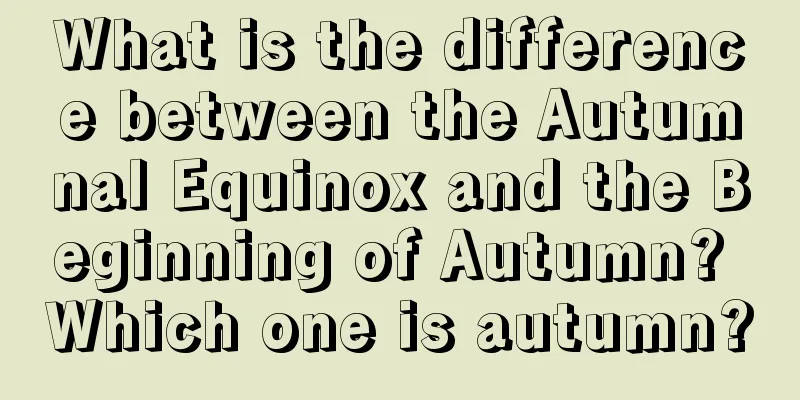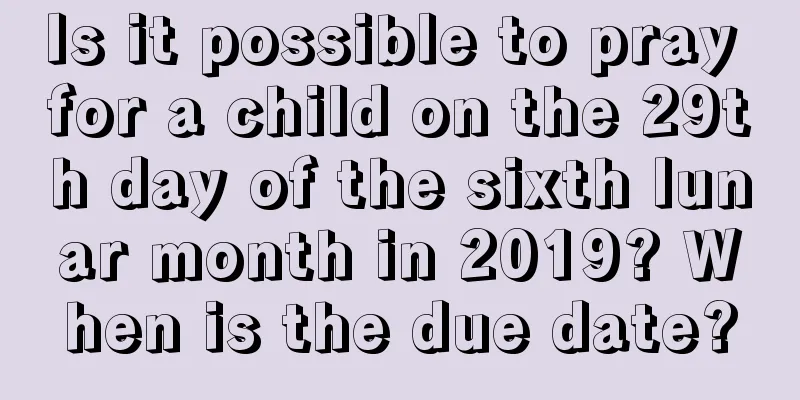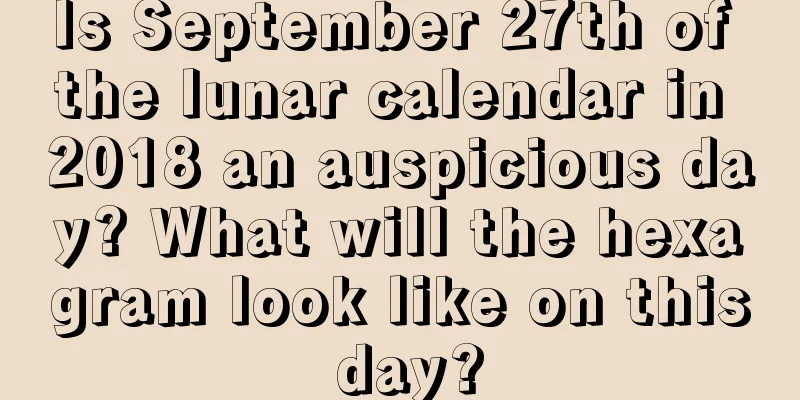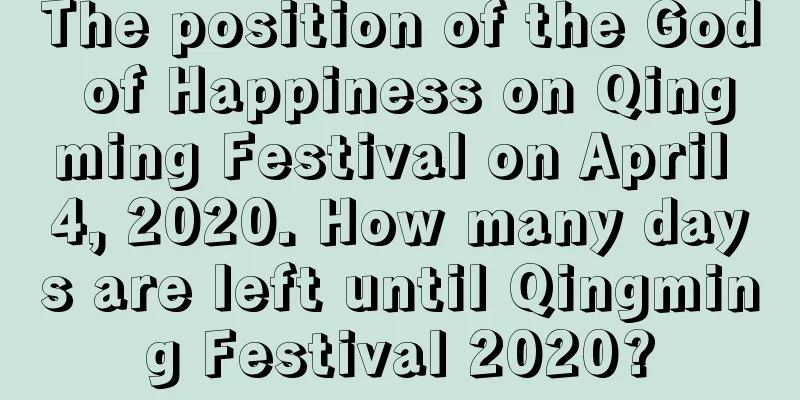When is New Year's Day now? When was it in ancient times?
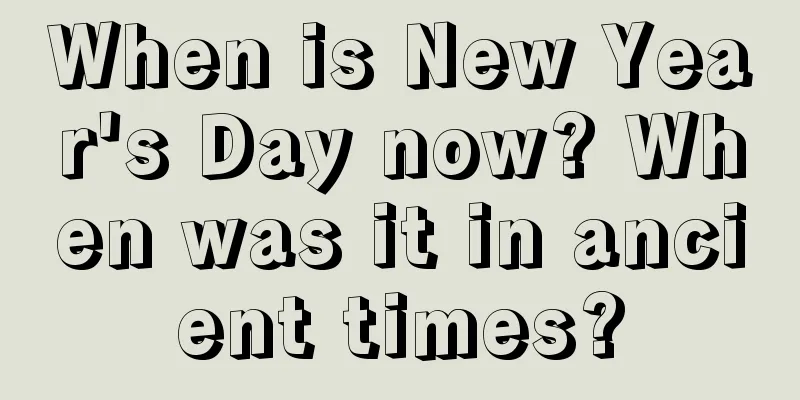
We all know that New Year's Day represents the beginning of the new year (Gregorian calendar). Is the New Year's Day in ancient times the same as the New Year's Day today? When is New Year's Day now? When was New Year's Day in ancient times? The twelfth month of the lunar calendar is also known as the twelfth month, or the wax month. So what are the things to do and not to do in the twelfth month? Visit Shui Mo Xiansheng's website to learn more about the twelfth lunar month of 2019.When is New Year's Day now?》New Year's Day - January 1st of the Gregorian calendar: Gregorian New Year - There is a custom of hanging lanterns and decorations [Introduction to New Year's Day] -New Year's Day, which is January 1st of the Gregorian calendar, is commonly known as the "New Year" in most countries in the world. 》——Yuan means "beginning", and the beginning of any number is called "Yuan"; Dan means "day"; "New Year's Day" means "the first day". 》——New Year’s Day is also called "Sanyuan", namely the first day of the year, the first day of the month, and the first day of the hour. 【New Year's Day in different eras】—— Due to differences in geographical environment and calendar, the time of New Year's Day in different countries and ethnic groups around the world varies in different eras. [Current New Year's Day holiday time]——January 1 (Gregorian calendar) Now, the Gregorian calendar is increasingly recognized by countries around the world. Most countries in the world have adopted the internationally accepted Gregorian calendar and regard January 1st of each year as "New Year's Day." ——In countries that use the Gregorian calendar, January 1st of the Gregorian calendar is considered New Year's Day and the whole country has a holiday. When was New Year's Day in ancient times?——Different dynasties have different definitions.The word "New Year's Day" first appeared in the "Ya Yue Ge" by Liang people in Southern Dynasties: "Four seasons mark the new New Year's Day, and longevity begins today." Yuan means first or beginning and Dan means morning. Yuan and Dan together refer to the beginning of the year, which is the day when the year begins. "1" "Historical Records" records: The Xia Dynasty regarded the first day of the first lunar month as New Year's Day; the Shang Dynasty regarded the first day of the twelfth lunar month as New Year's Day; 《2》 In the Zhou Dynasty, the first day of November was regarded as New Year's Day; 《3》 In the Qin Dynasty, the first day of October was regarded as New Year's Day; 《4》Emperor Wu of Han restored the first day of the first lunar month as New Year's Day. ——After the Revolution of 1911, the Gregorian calendar was adopted. The first day of the first lunar month was called the Spring Festival, and the first day of the first month in the Gregorian calendar was called the New Year. |
<<: Is it a good idea to get married on Christmas 2019? The Origin of Christmas
>>: What day is New Year’s Day? Is January 1st of the Gregorian calendar a good day?
Recommend
Is it okay to get a haircut on February 24, 2020? What are the precautions for shaving children’s heads?
Introduction: You also need to choose an auspiciou...
Is the day after the beginning of winter good in 2020? What flowers bloom on the beginning of winter?
Introduction: Every day unfolds differently, and t...
Is July 1st Party Founding Day in 2019 a suitable date for opening a business? Which Party Founding Day is it in 2019?
Introduction: Party Founding Day is an important d...
What gift should I bring to my parents for National Day in 2019?
The National Day falls on October 1st every year. ...
Is the seventh day of the first lunar month in 2018 suitable for marriage? What are the taboos on the wedding day?
Marriage is a major event in life, so every aspect...
When is the Grain Full solar term? What is the meaning of "full"?
The beginning of summer brings about the Grain Ful...
What date is the seventh day of the third lunar month in 2018?
In the third month of the lunar calendar, light f...
Is March 11th of the lunar calendar in 2020 a suitable day for a funeral?
As Qingming Festival approaches, more and more peo...
Is the 14th day of the sixth lunar month in 2022 an auspicious day or an unlucky day?
Some days are auspicious days, while some days are...
Where is the God of Wealth on October 20, 2017?
Many people like to arrange happy events in winte...
Can we open for the Dragon Boat Festival on May 5, 2018? Feng Shui analysis for auspicious store opening!
Opening a business is an extremely important matte...
Is it okay to sign the contract on the ninth day of the fourth lunar month in 2022? Is this an auspicious day?
The fourth month of the lunar calendar is the mont...
Analysis of the fate and fortune of boys born on the fourth day of the ninth lunar month in 2021
The ninth month of the lunar calendar is also know...
Is it a good idea to get a haircut on May 21st of the lunar calendar in 2018?
Introduction: People’s image has always been a top...
What date is the first day of the eighth lunar month in 2018? What day is it?
Autumn is a season of harvest, with the fragrance...



